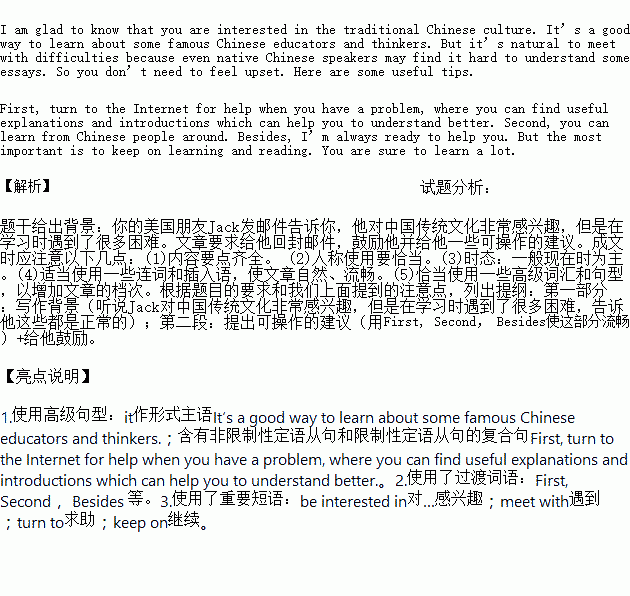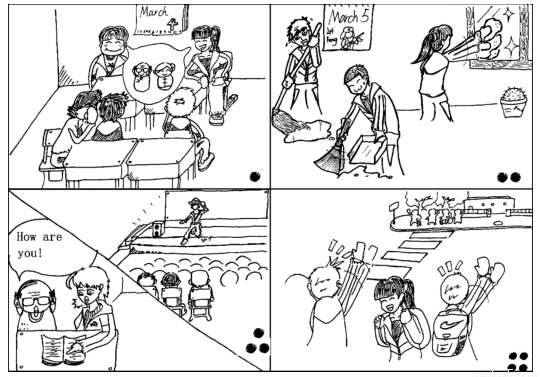题目内容
假如你是李华,你的美国朋友Jack发邮件告诉你他对中国传统文化非常感兴趣,但是在学习时遇到了很多困难,希望得到你的帮助。请你用英文给Jack回邮件,鼓励他,并建议他利用网络解决一些困难,同时,请教周围的中国人也是一种很好的办法。
注意:1.词数100左右;
2.可以适当增加细节,以使行文连贯。
____________________________________________________________________________________________
____________________________________________________________________________________________
____________________________________________________________________________________________
____________________________________________________________________________________________
____________________________________________________________________________________________
____________________________________________________________________________________________
_______________________________________________________________


